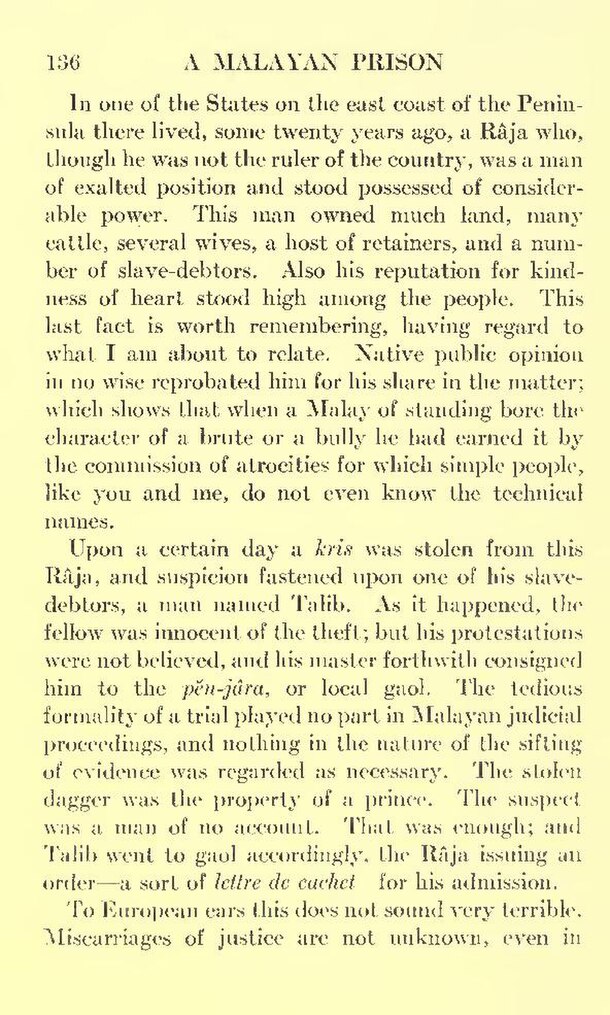In one of the States on the east coast of the Peninsula there lived, some twenty years ago, a Râja who, though he was not the ruler of the country, was a man of exalted position and stood possessed of considerable power. This man owned much land, many cattle, several wives, a host of retainers, and a number of slave-debtors. Also his reputation for kindness of heart stood high among the people. This last fact is worth remembering, having regard to what I am about to relate. Native public opinion in no wise reprobated him for his share in the matter; which shows that when a Malay of standing bore the character of a brute or a bully he had earned it by the commission of atrocities for which simple people, like you and me, do not even know the technical names.
Upon a certain day a kris was stolen from this Râja, and suspicion fastened upon one of his slave-debtors, a man named Talib. As it happened, the fellow was innocent of the theft; but his protestations were not believed, and his master forthwith consigned him to the pěn-jâra, or local gaol. The tedious formality of a trial played no part in Malayan judicial proceedings, and nothing in the nature of the sifting of evidence was regarded as necessary. The stolen dagger was the property of a prince. The suspect was a man of no account. That was enough; and Talib went to gaol accordingly, the Râja issuing an order—a sort of lettre de cachet for his admission.
To European ears this does not sound very terrible. Miscarriages of justice are not unknown, even in
